Duke Spotlight: Righting Wrongs in the Justice System
The Wrongful Convictions Clinic in Duke Law investigates plausible claims of innocence made by incarcerated people in North Carolina

Spotlight: Duke Wrongful Convictions Clinic
Years at Duke: 13
Number of employees: 3 (and approximately 20 student-attorneys per year)
Who they are: The Wrongful Convictions Clinic in Duke Law investigates plausible claims of innocence made by people incarcerated for felonies occuring in North Carolina.
Within the Center for Criminal Justice and Professional Responsibility, student-attorneys under the supervision of faculty work with the student-led Duke Law Innocence Project to manage cases and perform a wide range of duties, including interviewing clients, locating and interviewing witnesses, gathering documentation, writing legal documents and memos, and working with experts. The work of the Clinic is also supported by the student-led Duke Law Innocence Project, which has approximately 75 student volunteers each year. 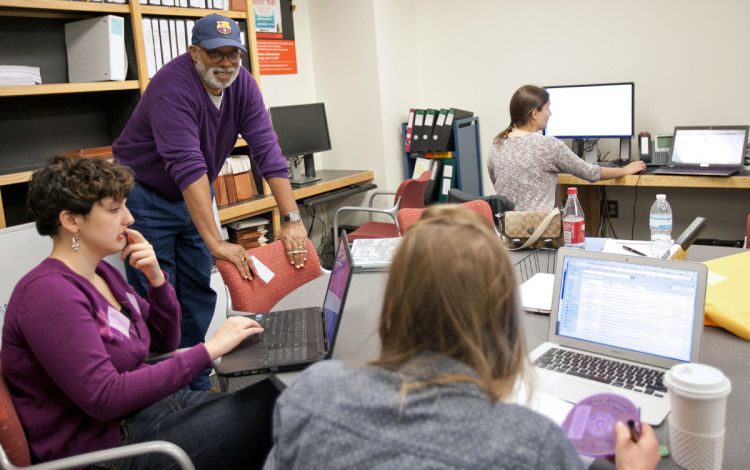
Professor and director of the clinic, James E. Coleman, and supervising attorney and professor Jamie T. Lau oversee the cases of six to 10 incarcerated clients at any given time. Each year, 20 students from the Law School aid directly in the representation of the clinic twhile also attending a four-credit seminar course taught by Coleman and Lau.
“Our ultimate goal is to improve the criminal justice system by identifying people who are innocent and helping them to obtain their freedom,” Coleman said. “And by litigating legal issues, constitutional issues, that if we win, we will improve the system because it will provide precedents for what happens in future cases.”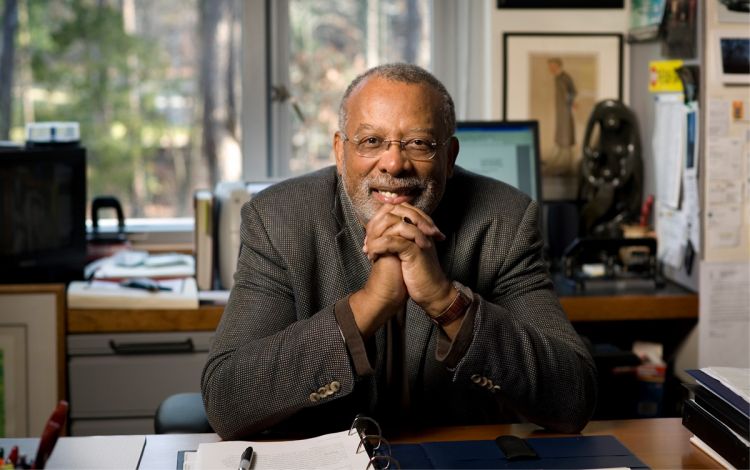
What they are known for: The clinic is known for relentlessly pursuing plausible claims of innocence.
With possible reasons for wrongful conviction including mistaken eyewitness identification, false confessions, faulty forensic evidence or what they call “jailhouse fabricators,” Coleman and Lau, with the help of student-attorneys, sort through, investigate and identify possible cases of interest for the clinic to pursue.
Last year, the clinic received 300 letters from incarcerated people across North Carolina requesting help. While only a few of those have cases that could be brought forth to court, those letters underscore the painstaking work of sorting through the larger number of people who reach out to the clinic annually.
Once the attorneys decide to take a case, they exhaust every path available to them in the legal system to prove clients' innocence, starting with the North Carolina Superior Court up to the United States Court of Appeals Fourth Circuit in Richmond, Virginia. This process can take decades and successes come slowly.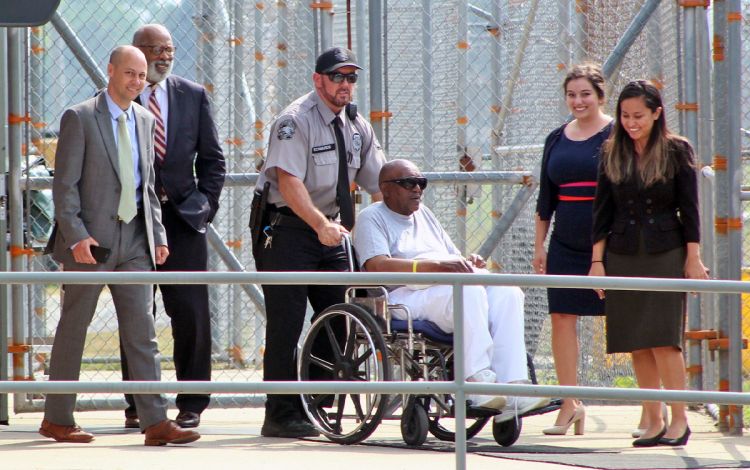
“As long as we believe in good faith that we have a way to undo a wrongful conviction, we stick with it,” Coleman said. “We tell our students that we never give up if there’s a way to pursue the relief of our client.”
How they make a difference: Among the 10 clients the clinic has freed are Willie George Shaw, who served six years in prison but was released in 2021, and Ronnie Long, who was freed in 2020 after serving 44 years. Also exonerated was Charles Ray Finch, a Wilson man whose prison sentence for murder was vacated in 2019 after he served 43 years.
“That ripple effect of our successes has an impact on the criminal justice system in a positive way, ensuring that the state meets its burden before somebody loses their liberty,” said Lau, the supervising attorney.
While the clinic makes a difference for clients, the work influences the next generation of lawyers studying at Duke, who will take on all kinds of roles, including defense, prosecution, and other areas of law.
“We want them to be advocates for criminal justice, whether they are prosecutors, defense lawyers or working at private law firms,” Coleman said. “We train them in the way that we would train a young lawyer working for us on a case.”
What they can do for you: The clinic offers opportunities for Duke community members to get involved in the work. This includes helping to keep the clinic informed of cases of interest in the community, sorting through letters and paperwork, or offering potential expertise that faculty or staff may have in their field that could help clients.
Those interested in participating in the work of the clinic can write Coleman and Lau an email with a brief statement about how they would like to help.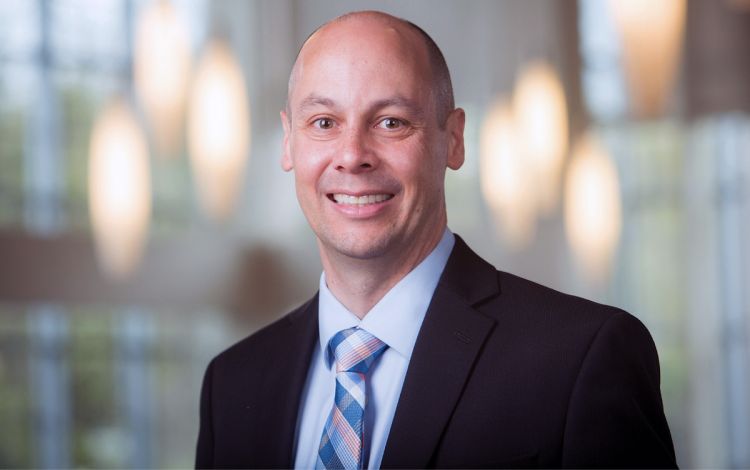
In return, Duke community members contributions can help bring about change or help the clients who Coleman and Lau are working hard to free.
“Our clients, when they’re exonerated, they feel a close connection to Duke,” Lau said. “We have clients with multiple needs, counseling needs, medical needs, that this University offers to the public. The University community can help support our clients by helping to meet these needs.”
Significant achievement: Over the past 16 months, four of the clinic’s clients have received a Pardon of Innocence from North Carolina Governor Roy Cooper. A pardon makes clients eligible to file a claim under North Carolina law for compensation following their wrongful incarceration.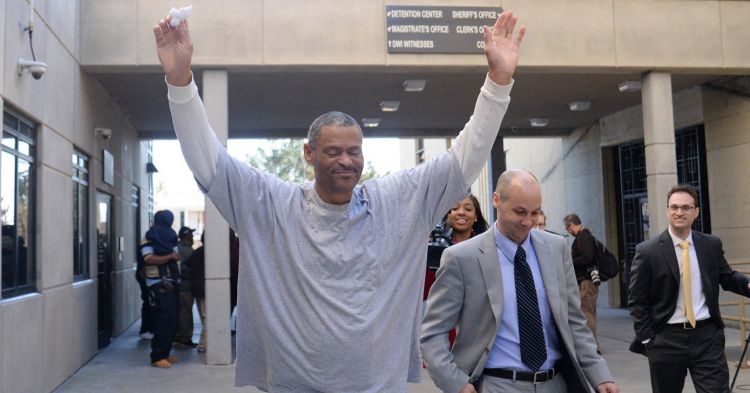
“When the Governor is taking notice of our clients and their innocence, that’s something that we are really proud of,” Lau said.
Big Goal: According to North Carolina law, any person who has been wrongfully convicted of a crime and has received a pardon of innocence from the governor is entitled to be awarded $50,000 from the state for each year in prison.
But under the law, compensation is capped at $750,000. For someone like Ronnie Long, who served 44 years, capping the maximum amount means the compensation he received comes out to approximately $17,000 per year, which Lau said is inadequate repayment for the majority of his life spent in prison.
The clinic is advocating for the cap on compensation to be raised significantly or eliminated altogether.
“We need to work toward getting that cap either removed or lifted, so individuals can get a more serious amount of compensation for the years taken from them by the state,” Lau said.
Have a suggestion for a Duke Spotlight? Let us know here.